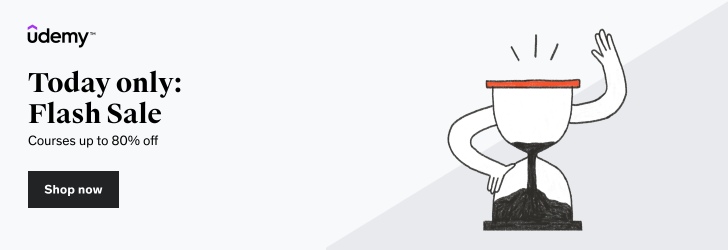Description
Welcome to The Ultimate C Programming Practice Test!
Exam Syllabus
Fundamentals of C Programming
This chapter covers the foundational elements of C programming, starting with Variable Names, Data Types and Sizes, C Constants, and Declarations. It dives into the essential operators such as Arithmetic Operators, Relational and Logical Operators, Increment and Decrement Operators, and Bitwise Operators. You’ll also explore Type Conversions, helping you grasp how data can be manipulated in C.
Expressions and Control Flow
In this chapter, you’ll explore the decision-making and control flow mechanisms in C. Topics include Assignment Operators and Expressions, Conditional Expressions, and the importance of Precedence and Order of Evaluation. It also covers key control structures such as If then else Statements, Switch Statements, For Loops, While Loops, and the usage of Break, Continue, and Goto and Labels.
Functions and Variable Scope
This chapter dives into the basics of functions and variable management in C. You’ll explore Functions, including those Returning Non-Integers, and learn about External Variables, Scope of Variables, and various types of variables like Static, Register, and Automatic Variables. Additionally, you’ll gain insight into the C Preprocessor concepts like File Inclusion, Macro Substitution, and Conditional Inclusion.
Pointers and Arrays
Pointers are critical in C, and this chapter focuses on mastering them. Topics include Pointers and Addresses, Pointer and Function Arguments, Pointers and Arrays, and Address Arithmetic. You’ll also cover Character Pointers and Functions, Pointers to Pointers, Multidimensional Arrays, and how Pointers differ from Multidimensional Arrays. Command line arguments and Pointers to Functions are also included.
Structures, Unions, and Typedefs
In this chapter, you’ll learn about complex data structures in C. Topics include Structures, Pointer to Structures, Arrays of Structures, and Self-Referential Structures. The chapter also covers C Typedefs, C Unions, and C Bit Fields. Additionally, you’ll touch on Float Datatypes, the Sizeof Keyword, Enums, String Operations, Character Handling, and Error Handling.
Advanced C Features and Memory Management
This chapter explores advanced C features and memory management techniques. It covers Mathematical Functions, General Utilities, Diagnostics, and Variable Argument Lists. You’ll also learn about Static vs Dynamic Memory Allocation, Memory Leak, Dangling Pointers, and Pragma directives. Other topics include Endianness, Recursion, Inline Functions, and handling system-level concepts like Signal Handling, Localization, and Date and Time Functions.
Key Features
Comprehensive Coverage: The test includes a wide range of topics, from C programming basics to advanced concepts like pointers, memory management, and data structures.
Detailed Explanations: Each question comes with in-depth explanations to help you understand the logic and reasoning behind the correct answers, making learning more effective.
Up-to-date Questions: The test is regularly updated with the latest and most relevant questions, ensuring you’re always practicing with current content.
Real-world Application: The questions are designed to simulate real-world programming scenarios, helping you apply your knowledge practically.
Time Constraints: Each question is timed to give you a feel of real exam conditions, sharpening your problem-solving speed and accuracy.
Unlimited Practice: You can retake the test as many times as you want, allowing for continuous learning and mastery of topics.
Instructions
-
You will have 2 minutes to answer each question. Manage your time wisely to complete all questions within the allotted time.
-
Ensure you thoroughly read each question and all answer choices before selecting the correct option.
-
You will be presented with one question at a time, and once you submit your answer, you cannot go back to change it.
-
While time is important, prioritize accuracy. Understanding the question and reasoning through the answer is key to success.
-
You can retake the test as many times as needed to improve your score and understanding.
-
After completing the test, review the detailed explanations provided for each question to learn from any mistakes.
-
Don’t rush through the test—stay calm, and approach each question systematically.
Who this course is for:
- Beginners who want to learn the basics of C programming.
- It is suitable for students studying computer science or related fields.
- Aspiring programmers looking to build a strong foundation in coding will benefit.
- Professionals seeking to enhance their programming skills can enroll.
- It is ideal for those preparing for technical interviews in software development.
- Individuals interested in understanding system-level programming will find it useful.
- Anyone eager to solve problems and create applications using C programming is welcome.






Reviews
There are no reviews yet.